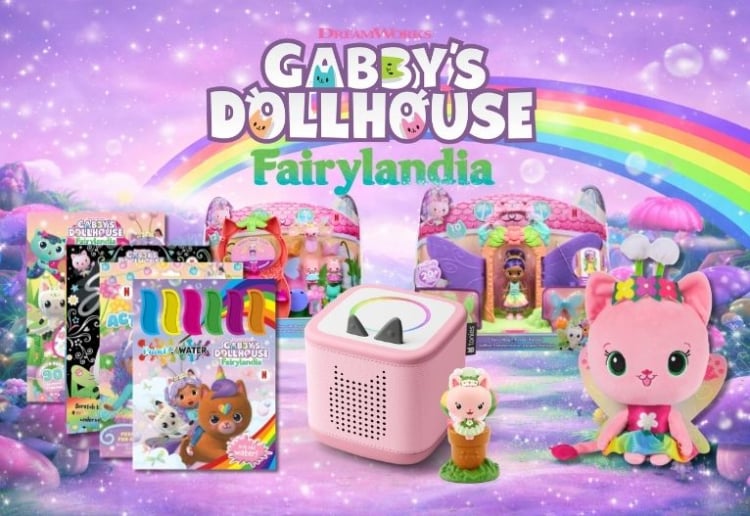I never thought I would be one of those. Going frantically through my finances, seeing how much I have saved in a month. Up until this point, I have lived a pretty careless life when it comes to money.
Don’t get me wrong. I wasn’t born into a particularly wealthy family. But my father had a pretty decent job. We were blessed and somewhat privileged. Later in life, I got a good job myself that allowed me to not just pay the bills but also shop impulsively.
The thought of ‘saving for the future didn’t even occur to me until I became pregnant. I had just quit my job to focus on being a mum and my husband became the sole earner of the family.
As fate would have it, it was the same time when a pandemic caused half of the world to go under lockdown. (You can read about my ordeal here).
Becoming a mum during an economic turmoil made me rethink the way I perceived money.
Finding the Balance
Despite my newfound infatuation with saving money, I decided early on that I wouldn’t be one of those mums who completely sacrifices her present for the future. I want to travel. Order a pretty dress that I found scrolling my Instagram feed. Have dinner at a fancy restaurant once in a while. In other words, I want to live a life.
As the famous quote by Mae West goes, “You only live once, but if you do it right, once is enough.”
I plan to experience the many gifts this world has to offer while also making sure that I remain financially secure.
Achieving this will be difficult and that’s why I have set out four principles to guide me in my journey.
1. Setting the Five Year Term
So, where do you see yourself in five years?
Anyone that has ever had a job interview is familiar with this annoying question. But it’s an interesting question once you pay attention to the five-year benchmark.
Employers don’t expect you to plan out your entire career because that would be too overwhelming. In the same spirit, one shouldn’t burden themselves by trying to figure out the rest of their financial life.
One of the best things my husband and I did was write down our goals for the next five years. We wrote down our aspirations separately and combined them to create a list.
A year in, this list has given us a direction and clear objectives on which we can plan our financial decisions. For instance, it has always been my dream to explore the Taj Mahal. Knowing that’s at the end of my journey, makes cutting down expenses and keeping a tight lid on my shopping all the easier.
When my son grows up, I would like him to create his own list too. Along with teaching him the importance of saving money, this would also encourage him to go after the things he desires. As a mum, instilling such a spirit in my child would be one of my biggest achievements.
2. Focusing on Experiences, Not Things
You might have heard it a million times. “Buy experience, not things”. This isn’t just a good quote to post on Instagram, it’s a piece of advice backed by research. A university-based survey reported that respondents overwhelmingly said that spending money on experience provided better value.
There are two reasons why happiness achieved from things doesn’t last. First, we get used to possessions over time. As the novelty of the item wears off, the excitement fades away. And then there’s the human need to constantly raising the bar. You might save up for years to buy that dream car. But after a while, you would want something better.
Compared to this, the experiences you buy are temporary. They don’t last beyond the time of excitement and this makes them something you savour much more than material objects. It is for this reason experience inspires a persistent feeling.
Prioritising experience has so far worked out well for me. I feel less drawn to high-end furniture or fancy jewelry because I am looking forward to a trip to the Gold Coast. Of course, this doesn’t mean I will never indulge in impulse shopping. But there are ways to manage that as well.
3. Creating a Budget for Spontaneous Shopping
I know myself enough to realise that I would be tempted to shop spontaneously on occasions. To make sure this does not mess with my finances, I have created a special budget that’s just for impulse shopping.
This way, I have the luxury of ordering a dress for no particular event without hurting my long-term goals. It’s a neat trick that I learned from a friend who works for a coupon company. Since I don’t want to go overboard with this, there’s a limit on how much I can spend. Once that limit is exceeded, I will no longer have the option of seeking any more retail therapy.
This money also acts as a backup to my emergency fund, which is a nice cushion thing to have.
4. Evaluation and Reassessment of Goals
I check every four months to see if my plan is still on track. This allows me to see where I stand and whether there’s any need to reassess my goals and objectives. Seeing that I am on track gives me the motivation to push forward. In contrast, knowing I am falling behind on certain objectives allows me to make timely corrections.
Evaluating the plan at regular intervals also provides an opportunity to rethink the end-goals I have set for myself. If I have changed my mind about something, I can redirect my efforts towards something else.
However, I don’t consider this a license to compromise on the big targets. Some goals cannot be compromised under any circumstances.
Final Thoughts
When it comes to finances, people either choose to live for today or save for their future. I plan on doing both. To make this happen, I have carefully assessed my current financial position to develop goals that I wish to achieve within specific timeframes.
Is the plan foolproof? Maybe not. Life is unpredictable and there will be some hiccups along the way. But it feels great to have a direction and mid-to-short term goals to work towards.
As a mum from a middle-income Brisbane family, I fancy my chances of leading a fulfilling life while also saving for our retirement and creating a good future for our child.
What do you think of my plans? I am open to more suggestions. And while we’re at it, where do you stand on the whole ‘saving money for the future’ vs ‘living for the now’ thing? Tell us in the comments below.





















12:05 pm
8:18 am
3:00 pm
5:49 pm
7:42 pm
8:19 pm
12:40 pm
1:54 pm
7:33 am
8:39 am
11:15 pm
10:37 pm
9:12 pm
2:27 pm
12:41 pm
9:36 am
8:27 am
8:26 am
-

-
-
mom93821 replied
- 08 Apr 2021 , 7:46 am
Reply7:56 am
7:45 am
- 1
- 2
- »
Post a commentTo post a review/comment please join us or login so we can allocate your points.